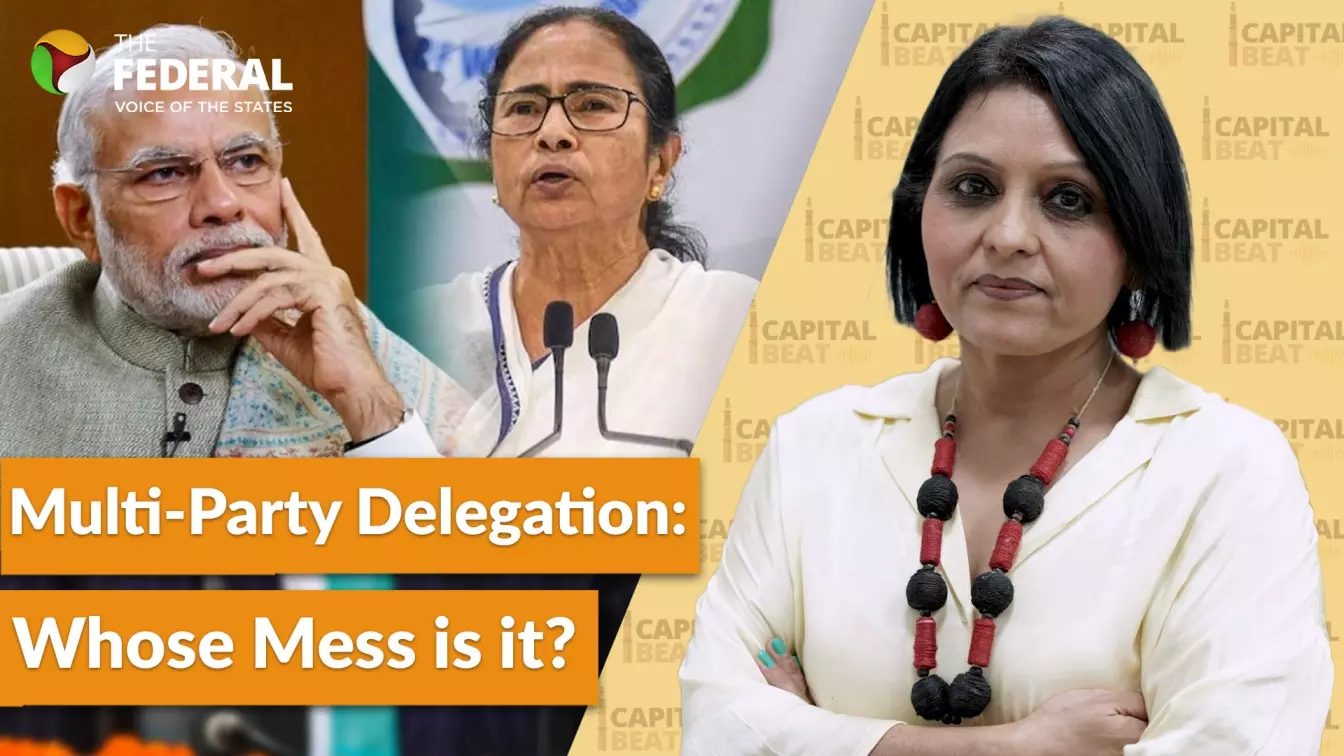
Capital Beat: ‘Centre’s anti-terror team will be met with cold formality abroad’
Experts weigh in on Centre’s move to send a multi-party delegation abroad amid allegations of secrecy, political one-upmanship, and ill-timed theatrics

In the latest episode of Capital Beat, political editor Puneet Nicholas Yadav and veteran journalist Anand K Sahay engaged in a detailed discussion on the government's post-Operation Sindoor decision to send a multi-party delegation abroad. The move, ostensibly to present a united front on India's fight against terrorism, has instead sparked allegations of secrecy, political one-upmanship, and ill-timed theatrics.
Sahay, offering a historical and strategic perspective, questioned the very intent and efficacy of the move, calling it a “Shivji ki baraat” with little diplomatic foresight. “If you wanted to build international opinion against terrorism, that groundwork should have been laid before the May 7th strikes,” he argued.
Also read: Operation Sindoor: Sharad Pawar snubs Sanjay Raut over 'boycott delegation' remark
A delegation in disarray
The delegation, reportedly comprising over 50 MPs and retired officials, was criticised for its ad hoc composition and lack of prior consultation with party chiefs. “Why now, and why like this?” asked Sahay, pointing to previous efforts under former prime ministers Narasimha Rao and Manmohan Singh that involved proper consultation and strategic timing.
Yadav elaborated on the disorganised outreach: MPs were contacted individually, bypassing party leadership—a move seen as deliberate, particularly in the case of Congress figures like Shashi Tharoor and Manish Tewari. “This isn’t the way you invite someone for an all-party diplomatic mission,” Yadav said, noting that the opposition was left embarrassed, leading to internal rifts and public confusion.
Partisan picks, problematic optics
Both panelists noted that the BJP’s choices for delegation members further complicated matters. Yadav questioned how figures like Tejasvi Surya, who previously tweeted offensive remarks about Arab women, could represent India's pluralistic image abroad. Similarly, MJ Akbar's inclusion, despite his resignation over sexual harassment allegations during the #MeToo movement, was seen as tone-deaf.
Sahay added, “This isn’t about India bloc versus NDA. It’s about a flawed and directionless decision made at the top, with unclear goals and poor planning.”
Messaging misfire
Sahay argued that the government missed the opportunity to genuinely unify political forces before the military strikes, thus weakening India’s diplomatic credibility. He highlighted how past international efforts to classify the Taliban or Pakistan-based terror groups as global threats had failed due to a lack of strategic consistency from India’s diplomatic corps.
“The US State Department, for instance, has long pursued a dual policy—fighting the Taliban one day and preparing to negotiate with them the next,” said Sahay. “You don’t build global consensus with poorly timed afterthoughts.”
Missed opportunities
Yadav contended that the opposition also failed to seize the moment. “They could have set clear conditions: hold an all-party meeting, allow Parliament to debate the ceasefire, and only then send a delegation. Instead, the discourse was derailed by petty politics over who got invited.”
He noted that important issues like who negotiated the ceasefire, what role the US may have played, and what intelligence was acted upon remain unanswered.
Is the mission doomed?
Both panelists agreed that the delegation is unlikely to achieve any tangible diplomatic gains. Sahay warned that the MPs would be “met with cold formality” abroad, while Yadav pointed out the inconsistency in India’s messaging. “If Turkey is boycotted for supporting Pakistan, will we boycott the US too? The hypocrisy is staggering,” he remarked.
In conclusion, Sahay called the delegation “a shabby, disgraceful effort” and squarely blamed the government for the diplomatic fiasco, while Yadav called it “an exercise in nothingness.”
Answers awaited
As the delegation prepares to leave on May 23, several critical questions remain:
Why was a ceasefire with Pakistan agreed upon?
What message was conveyed to Pakistan beforehand?
Where are the perpetrators of the Pahalgam attack?
Whether the delegation’s return brings clarity or further obfuscation remains to be seen.
The content above has been generated using a fine-tuned AI model. To ensure accuracy, quality, and editorial integrity, we employ a Human-In-The-Loop (HITL) process. While AI assists in creating the initial draft, our experienced editorial team carefully reviews, edits, and refines the content before publication. At The Federal, we combine the efficiency of AI with the expertise of human editors to deliver reliable and insightful journalism.

